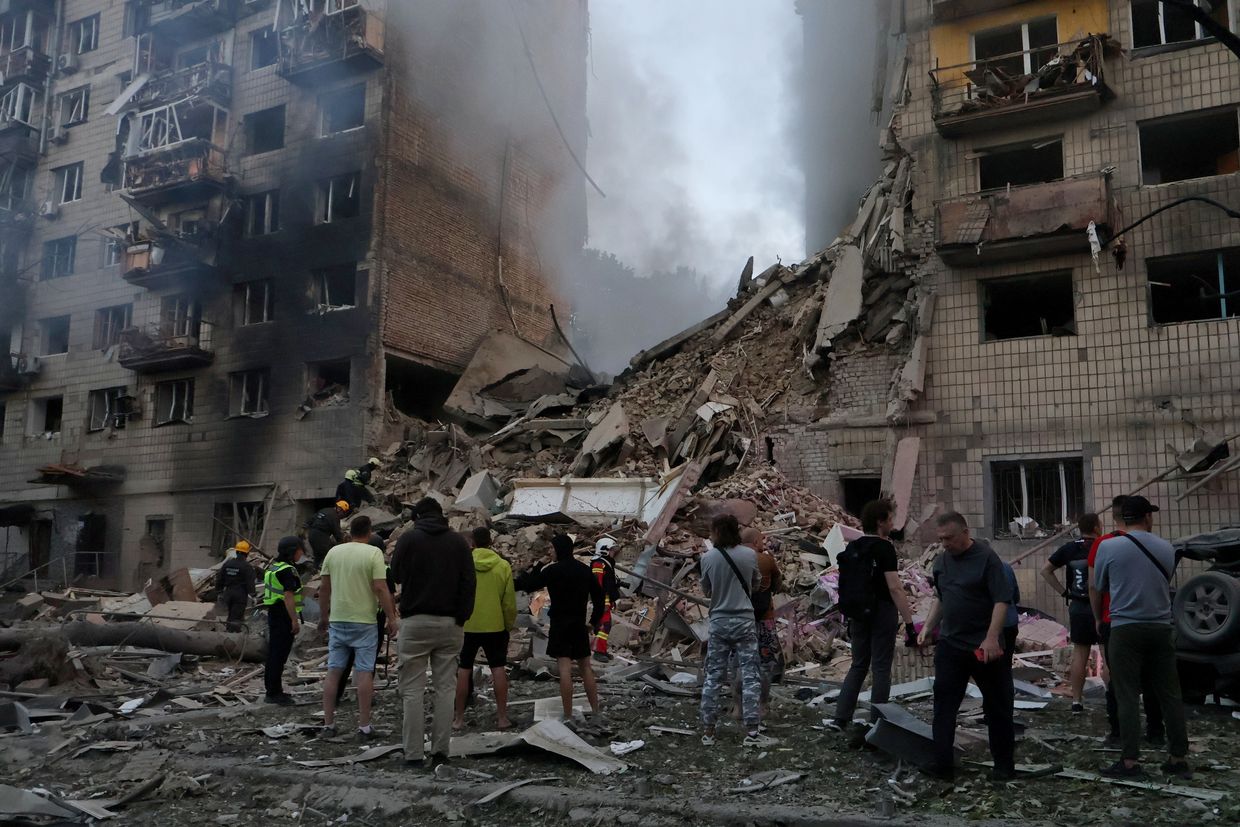What Do Trump’s Tariff Hikes Mean for Canada’s Trade-Dependent Economy?

© Blair Gable/Reuters


© Blair Gable/Reuters


© Avishag Shaar-Yashuv for The New York Times


© Evelyn Hockstein/Reuters


© Tierney L. Cross/The New York Times


© Ralf Hirschberger/Agence France-Presse — Getty Images


© Ian Maule for The New York Times


© Doug Mills/The New York Times


© Marco Bello/Reuters


© Dave Sanders for The New York Times


© Pool photo by Gonzalo Fuentes


© Paul Natkin/Getty Images


© Joe Raedle/Getty Images
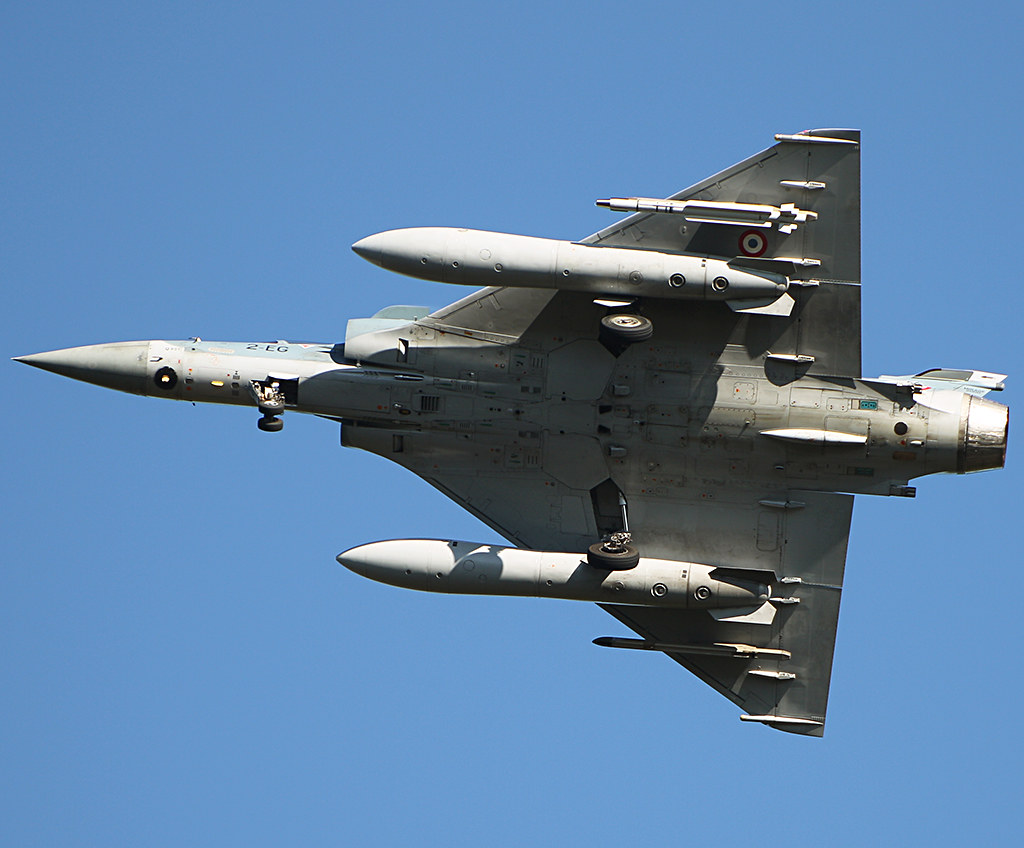

Ukrainian pilots to gain greater chances in the sky due to Paris’s support. After an hour-long meeting with French President Emmanuel Macron on 18 July, Ukrainian leader Volodymyr Zelenskyy confirmed that France is ready to continue training Mirage fighter jet pilots on its own territory.
In February 2025, Ukraine received the first batch of Dassault Mirage 2000-5 fighter jets, modified to carry the powerful SCALP-EG cruise missiles and Hammer glide bombs. The SCALP-EGs are crucial to Ukraine’s strategy. With a range of up to 155 miles and bunker-busting warheads, these 2,900-pound missiles are designed to target Russian command posts, disrupting military coordination and weakening their resistance.
“I want to specifically highlight our agreement on Mirage pilot training: France is ready to accept additional pilots for training on additional aircraft,” said Zelenskyy.
Among other key issues was the strengthening of Ukraine’s air defense system. The two leaders discussed the supply of missiles for modern SAMP/T systems and the launch of a joint project to fund interceptor drones. Zelenskyy noted that relevant decisions will be prepared at the level of both countries’ defense ministries.
The Ukrainian president also thanked France for its active role in promoting the EU’s 18th package of sanctions and confirmed that Kyiv and Washington are working together so that “Russia feels truly global pressure.”
The EU agreed on a new package after the bloc’s ambassadors reached consensus on restrictions targeting key sectors of the Russian economy. Malta and Slovakia reportedly lifted their vetoes after receiving critical assurances.
The new Russia sanctions package will include a formal ban on the Nord Stream 1 and 2 pipelines. EU High Representative for Foreign Affairs and Security Policy Kaja Kallas said the bloc would also reduce the oil price cap as part of efforts to cut the Kremlin’s war revenues.


© Pool photo by Leon Neal


© Carlos Osorio/Reuters


© Ava Pellor for The New York Times


© David Guttenfelder/The New York Times


© Pool photo by Ludovic Marin


© Sebastien Bozon/Agence France-Presse — Getty Images
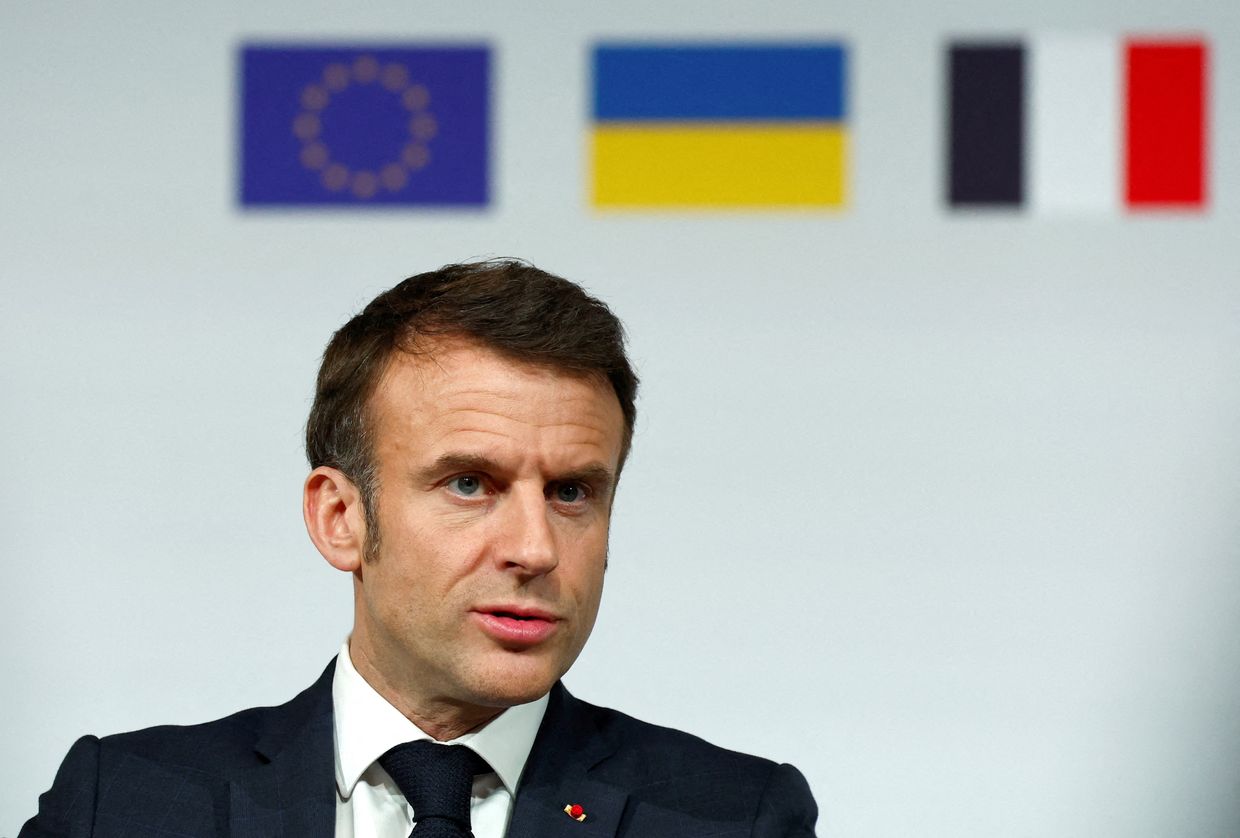

Editor's note: The story was updated as the President's Office confirmed that following the call with Vladimir Putin, Emmanuel Macron also called Volodymyr Zelensky.
French President Emmanuel Macron and his Russian counterpart Vladimir Putin held a call on July 1 for the first time since 2022, discussing Russia's war against Ukraine and the conflict in the Middle East, the Kremlin's press service reported.
The conversation between the two leaders took place as the Russian army continues to advance along the front line, trying to gain a foothold in Sumy Oblast and enter Dnipropetrovsk Oblast.
Moscow has repeatedly rejected the U.S.-backed ceasefire proposal, stalling peace talks with Ukraine.
Following the call with Putin, Macron also called Zelensky to discuss his conversation with the Russian president, a source in the President's Office told the Kyiv Independent.
The call between Zelensky and Macron was "constructive," the source added. Putin's position remained unchanged: he does not show any willingness to end the war in Ukraine, according to the source.
The call between Putin and Macron lasted over two hours, BFM TV reported, citing the Elysee Palace.
During the conversation with Macron, Putin called Russian war "a direct consequence of the policy of Western powers" that "ignored Russia's security interests, created an anti-Russian bridgehead in Ukraine," the Kremlin said.
Macron, in turn, noted France's unwavering support for Ukraine's sovereignty and territorial integrity, Suspilne reported, citing the Elysee Palace.
The French president also called for "a ceasefire to be established as soon as possible and for negotiations to begin."
The leaders will continue to discuss Russia's war in Ukraine, according to the Elysee Palace.
The presidents also discussed the situation in the Middle East regarding the Iranian-Israeli conflict and the U.S. strikes on Iranian nuclear facilities.
Macron frequently called Putin in the first year of Russia's full-scale invasion of Ukraine. Their previous call took place in September 2022.
 The Kyiv IndependentOleg Sukhov
The Kyiv IndependentOleg Sukhov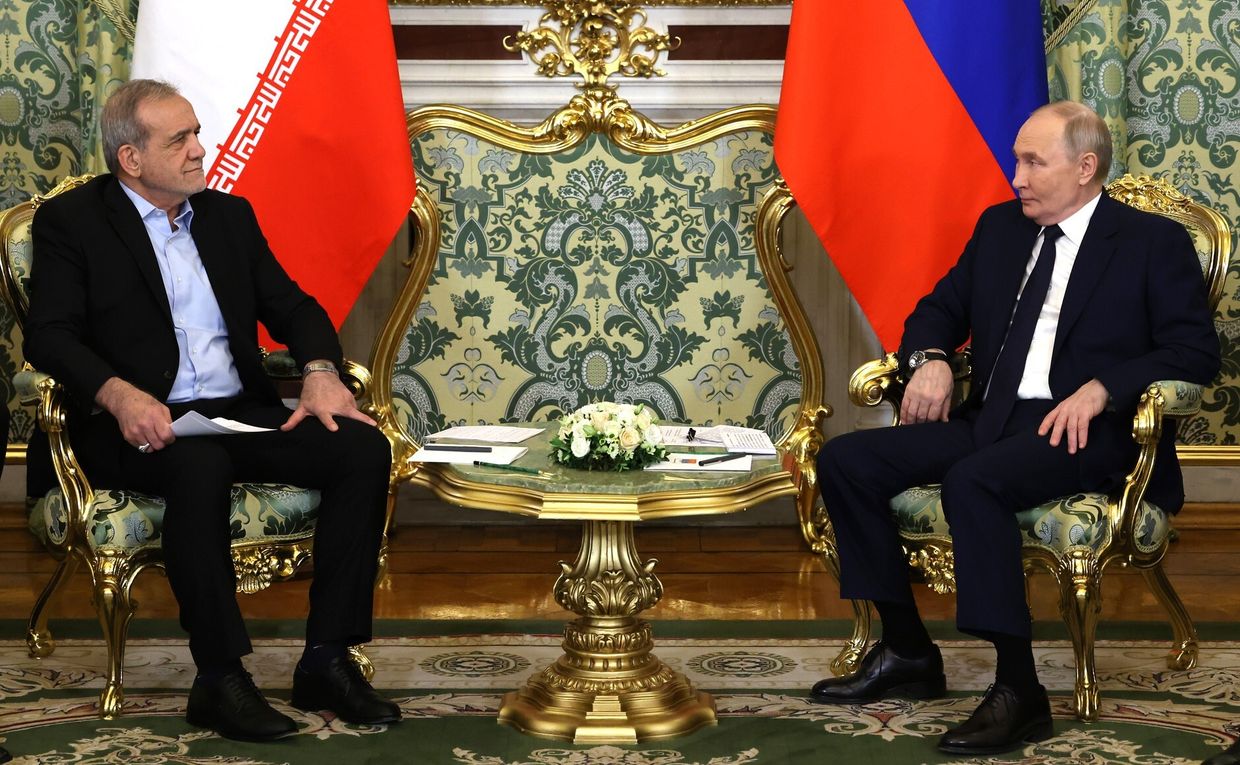
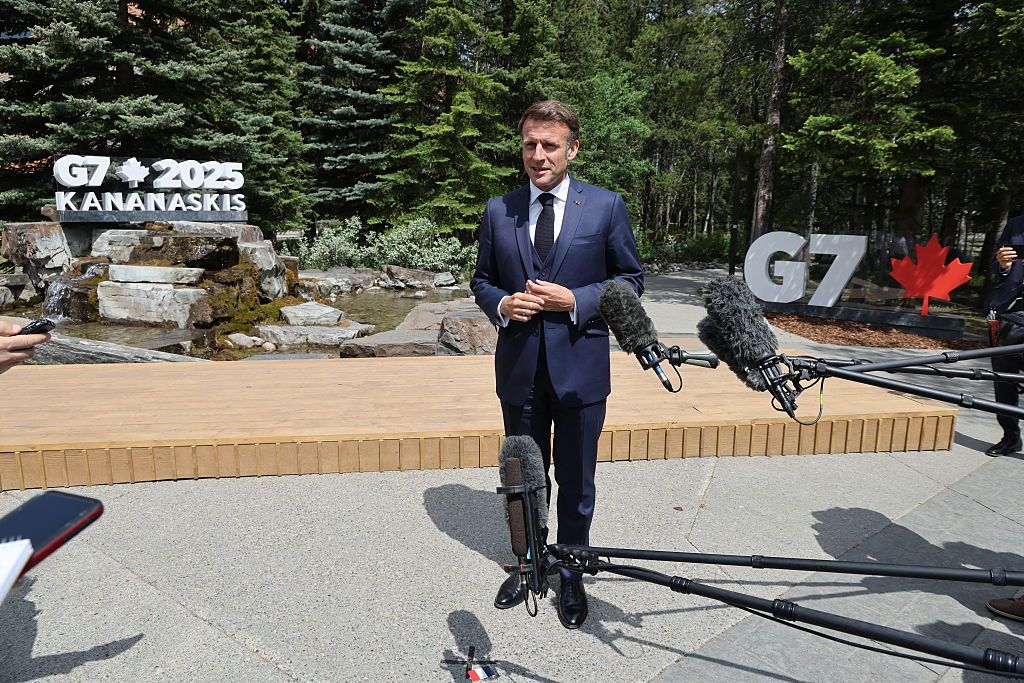

The European Union and its allies are ready to toughen sanctions on Russia, French President Emmanuel Macron said on the sidelines of the Group of Seven (G7) summit on June 17.
"With President (Volodymyr) Zelensky at the G7. We stand in solidarity with the Ukrainian people after last night’s massive Russian strikes," Macron said in a post to social media.
"We are determined to increase pressure on Russia to accept the immediate and unconditional ceasefire that Ukraine is ready for," he added.
Macron attended the G7 summit in Kananaskis, Canada, from June 15-17. Global leaders discussed a wide range of topics, including Russia's war against Ukraine.
As the G7 leaders met in Canada, Russia launched one of its worst drone and missile attacks on Kyiv since it began its full-scale war against Ukraine in February 2022, killing 16 people and injuring at least 134.
"The common position that is emerging is to say, 'We need to strengthen sanctions,'" CBC News reported, citing Macron.
Europe is proposing much tougher sanctions than the U.S. has imposed on Russia, Macron said, adding that the EU is in "very close co-ordination" with Canada, Japan, and the U.K.
Several countries, including Canada and the U.K., introduced additional sanctions on Russia as the G7 summit was ongoing.
Canada introduced a new military aid package for Ukraine in addition to its sanctions against Russia.
"In our view, this has changed the situation because it will allow us to bring Russia back to the negotiating table, as (U.S.) President (Donald) Trump has been demanding," Macron said, according to CBC News.
Zelensky attended the summit and met with various leaders, including Macron and Canadian Prime Minister Mark Carney.
Zelensky left the summit early, citing Russia's attack on Kyiv. The nearly nine-hour-long attack saw Moscow's forces launch large numbers of drones and missiles at Ukraine's capital.
Foreign Minister Andrii Sybiha condemned the attack, calling it a "massive and brutal strike" timed deliberately to coincide with the G7 summit.
Zelensky described the drone and missile assault as "one of the most horrifying attacks on Kyiv."
 The Kyiv IndependentKateryna Denisova
The Kyiv IndependentKateryna Denisova